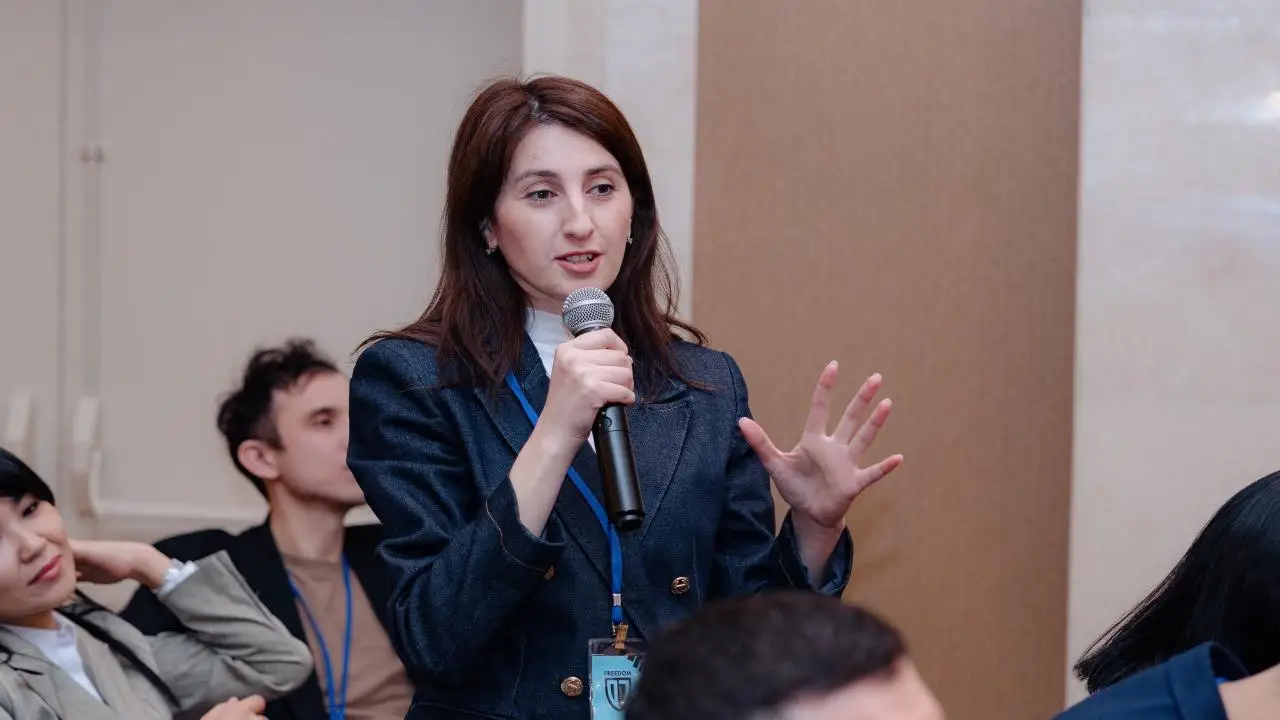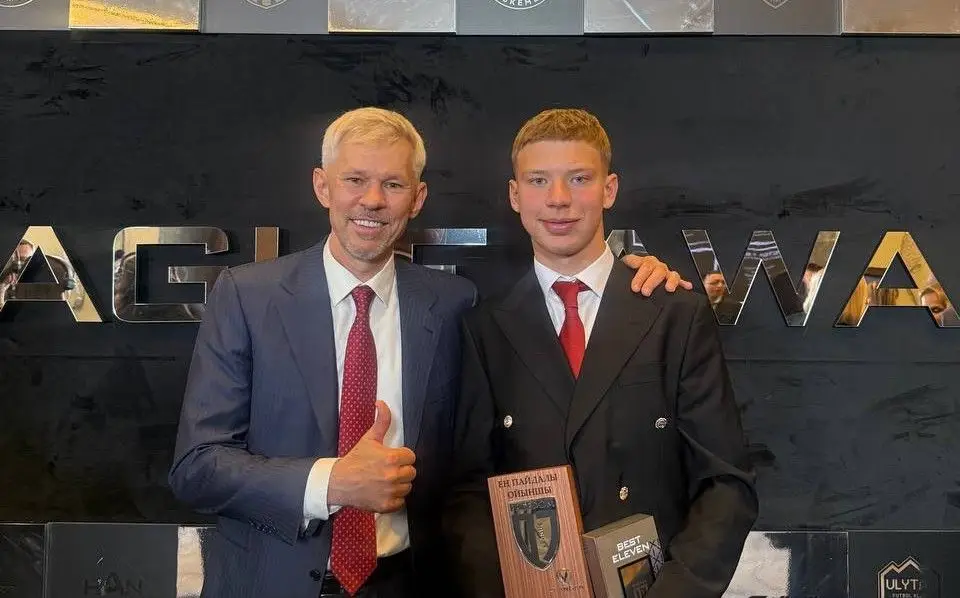Starting this season, all teams in the Freedom QJ League competing in League A will have mental preparation specialists on their staff. We spoke with Tamara Ruslanovna Akhmetali, a specialist in the sports-analytical department, sports psychologist, and educator, to learn more about the specifics of this field and why proper mental preparation is crucial in youth football.
For five years, Tamara Ruslanovna worked at the Kairat Academy, and she is now in her second season with the league. She focuses on the psychological preparation of players, helping them develop resilience, confidence, and concentration. She conducts training sessions, individual consultations, and group sessions for both players and coaches.
Her main goal is to shape psychologically resilient and self-confident players who are ready for the challenges of professional football.
– What is the role of a mental coach in a football team? How do they interact with players and the coaching staff?
A mental coach helps football players build self-confidence, maintain focus in challenging situations, and effectively handle pressure. Their work is structured in two formats.
Firstly, there are group sessions aimed at developing team cohesion, teaching self-regulation techniques, and enhancing stress resilience. Secondly, there is individual work focused on addressing personal concerns, motivation, and goal-setting.
Interaction with the coaching staff is crucial. Since they observe the players daily, they can notice changes in their mental state and involve the psychologist at the right time.
– How does a specialist develop an individual approach to build trust with a player?
The optimal strategy is a combination of two methods. On one hand, it is important for the player to know they can seek help when needed. On the other hand, the psychologist actively observes the player’s behavior and emotional state.
If a player is reluctant to engage, it is crucial to create a trusting atmosphere without forcing communication. Talking about topics beyond football, such as life in general, can help build rapport. Interactive formats can also be useful, such as discussing case studies or examples from the biographies of famous footballers.
An individual approach is developed through observation, analysis of the player’s personal traits, and gradually establishing a connection.
– In the upcoming season, every team in League a will be required to have a mental coach. What will your interaction with them look like?
The key goal is to establish collaboration among club psychologists to create a unified methodology. The interaction will be structured in the following formats:
– General work plan: Developing a support system for players throughout the season.
– Experience exchange: Regular meetings and case discussions.
– Methodological support: Assisting in adapting universal techniques to fit the specific needs of each team.
It is crucial not only to introduce mental training into teams but to make it an integral part of the overall training process.
– What are the most common psychological challenges players face at this age? How do these challenges differ from those encountered in their professional careers?
Between the ages of 12 and 18, footballers face a variety of psychological challenges. One of the most common is the fear of making mistakes—the anxiety of disappointing their coach, parents, or teammates. They also experience emotional swings, where wins and losses significantly impact their self-esteem. Another key challenge is competition—the realization that not everyone will make it to professional football. Additionally, young players must find a balance between academics and sports, which can be difficult to manage.
– Many players struggle with the transition from youth to professional football. What systematic steps can be taken to mentally prepare them for these contrasts?
The transition to professional football is a stressful period. At this stage, players face new challenges, including pressure from fans, media scrutiny, and rising expectations. Therefore, it is crucial to prepare young players in advance to handle these challenges effectively.
To mitigate potential negative effects, it is important to:
– Instill the right values – Encourage a focus not only on success but also on a love for the game.
– Teach attention management – Help players concentrate on the process rather than external expectations.
– Develop resilience to criticism – Guide them in perceiving feedback constructively.
– Work on self-esteem – Ensure players do not tie their self-worth solely to on-field performance.
On a systematic level, these aspects can be addressed through continuous psychological training and consistent support from specialists.
– Are there any universal tips you could give to all young football players?
Focus on the process, not just the result – victories are important, but so is progress. Don’t be afraid of mistakes – each one provides a new learning experience. Manage your emotions – controlling your reactions helps achieve consistent performance.
Learn to work as a team – success depends not only on individual skills but also on collaboration with teammates. Take care of your mental health – proper rest, sleep, and daily routines are just as important as training.
Mental preparation is the foundation of a successful and long career. The earlier a footballer starts paying attention to this aspect, the more confident they will be on and off the field.




.webp)


(0).webp)





.webp)


.webp)